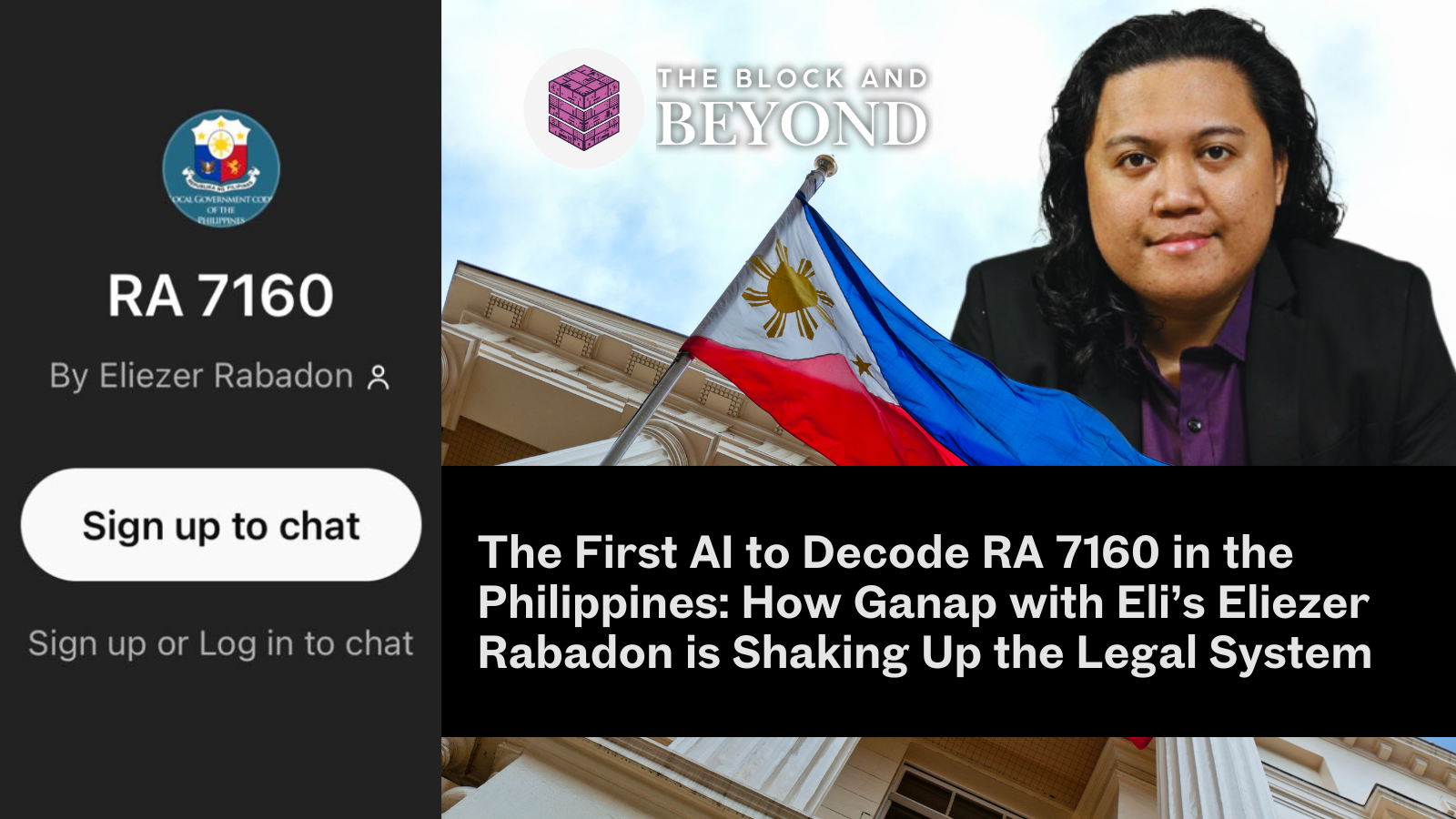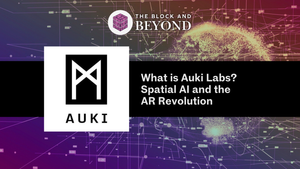Ganap With Eli's Eliezer Rabadon didn’t just build a GPT—he unlocked RA 7160 for the people by turning a dense legal code into a chatbot you can actually talk to.
For most Filipinos, the Local Government Code of 1991 (RA 7160) is a complicated document reserved for lawyers, bureaucrats, and the occasional policy nerd. But for Eliezer Rabadon—a former SK Chairman, tech entrepreneur, and President-elect of the Rotary Club of Midtown Diliman—it was the perfect candidate for AI intervention. The result? A custom GPT that translates one of the Philippines’ most important governance documents into something far more usable: a conversation.
In addition, Eliezer Rabadon is also the Tech Lead of the Internet Computer Protocol (ICP) Hub of the Philippines and has even participated in training Davao City's LGU on how to create scalable and modular systems on blockchain (full story here).
In this exclusive scoop, Rabadon speaks with The Block and Beyond about how civic service, technology, and timing led him to build what may be the country’s first legal GPT of its kind. The chatbot, powered by OpenAI's GPT framework, makes it easier for anyone to understand how local government works, from barangay budgets to mayoral powers.

The most exciting part about this GPT is that it is absolutely free to use, with the link publicly available on Rabadon's profile.
From SK Roots to Smart Solutions
Rabadon’s path to building the GPT started years before AI went mainstream.
"I used to serve as an SK Chairman in Bulacan, so I’ve seen how important RA 7160 is to local governance—but it’s not exactly the easiest law to understand."
With a background in community leadership and a tech career through DvCode Technologies Inc., he was well-positioned to spot the gap between public knowledge and public policy.
"Now that I’m involved in tech and civic work, I wanted to create something simple and useful."
The GPT he created isn't just a chatbot; it's a bridge between the citizen and the state, one that speaks in plain terms.
Building the Bot: Legal Jargon, Meet AI Logic
Creating the GPT wasn’t technically hard, Rabadon explains, thanks to OpenAI’s user-friendly tools. But keeping it accurate and on-topic proved more demanding.
"The real challenge was making sure it answered within the scope of RA 7160 and didn’t go off-topic or give misleading info."
The balance lay in making dense legal language less intimidating while avoiding oversimplification. He leaned on his dual background in governance and software to ensure the chatbot delivered both clarity and credibility.
"I had to think about how to make legal language less intimidating without oversimplifying it."
Rabadon sees the GPT as more than a tech demo; it’s a step toward democratizing civic information.
"There’s real potential in making other laws more understandable, especially for ordinary citizens."
He points to laws about labor rights, rental regulations, and small claims court as areas ripe for GPT-based exploration.
"These impact people daily, but the legal language creates a barrier."
The RA 7160 GPT, in his view, could be a model for other AI tools that make civic engagement simpler.
Beyond Law: Disaster Readiness, Mental Health, and More
While the focus has been on legal code, Rabadon’s vision is much broader.
"There are gaps in things like disaster preparedness, government services, mental health, and even financial literacy."
In these areas, information exists but is often buried in jargon or hard-to-navigate platforms.
"In many areas, the challenge isn’t the lack of programs—it’s the lack of accessible information."
Rabadon’s RA 7160 GPT isn’t just a technical achievement; it’s a civic one. By building a tool that helps Filipinos better understand how they are governed, he’s opened the door to a future where legal systems are less opaque and more participatory.
"I hope this GPT sets an example of how AI can support civic understanding."
If you want to learn more about Eliezer Rabadon, subscribe to his podcast on YouTube and Facebook.
We also wrote about Eliezer Rabadon in earlier series:











